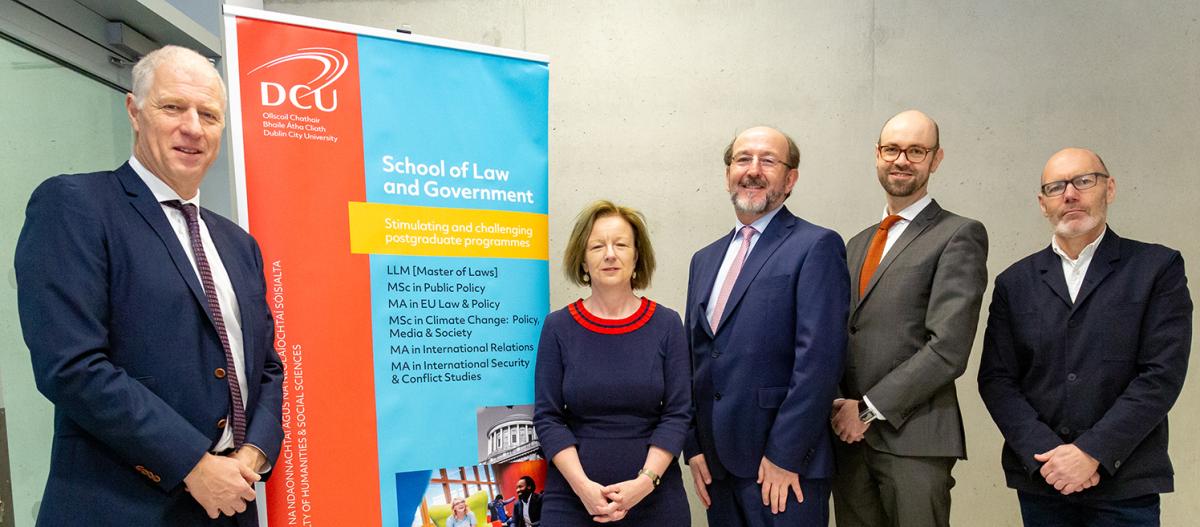

DCU hosts major conference on The Climate Challenge: Policy, Media and Society
On 8 February Dublin City University hosted a very successful conference to mark the inaugural year of DCU's MSc in Climate Change: Policy, Media and Society.
The conference featured keynote addresses from:
- Dr. Hans Bruyninckx, Executive Director of the European Environment Agency
- Hildegarde Naughton T.D., Chair of the Joint Oireachtas Committee on Climate Action
The conference took place against the backdrop of increasingly stark warnings from climate scientists, particularly the IPCC report on Global Warming of 1.5ºC, and provided a timely opportunity to explore important recent developments in international and national climate policy as well as perspectives on climate change communication and education.
The conference was opened by DCU President Prof. Brian MacCraith and a keynote address by Dr. Hans Bruyninckx. This was followed by a panel on climate change communication featuring contributions from Kevin O'Sullivan (Irish Times), Dr. David Robbins (DCU) and Dr. Declan Fahy (DCU), and a panel on climate change education featuring Dr. Tara Shine (Change by Degrees), Stephen Farley (Trócaire), Dr. Audrey Bryan (DCU) and Rowan Oberman (DCU).
The afternoon was kicked off by a keynote address by Hildegarde Naughton T.D. This was followed by a panel on Ireland’s national climate policy response featuring Dr. Roderic O’Gorman (DCU), Sadhbh O'Neill (Climate Case Ireland, Paul Kenny (Tipperary Energy Agency) and Mark Foley (EirGrid). The final panel explored international climate policy after the December 2018 UN climate conference in Katowice and featured Prof. John Sweeney (Maynooth University), Sara Stefanini (Climate Home News) and Dr. Diarmuid Torney (DCU).
The conference received generous support from the Environment Protection Agency.
